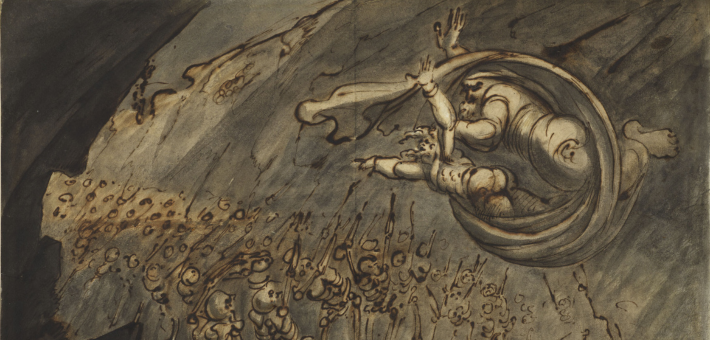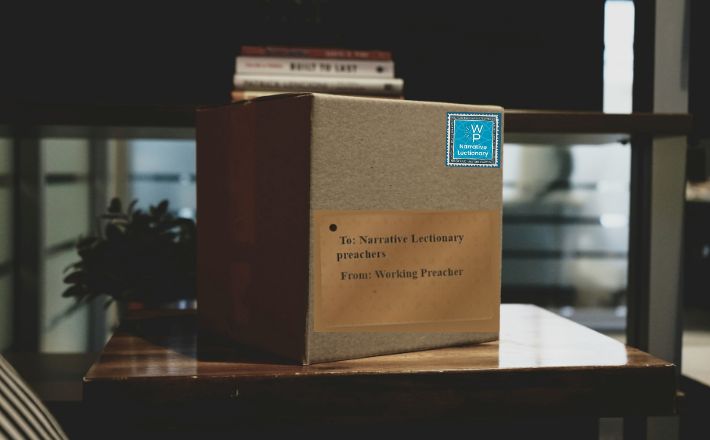Commentary on Ezekiel 37:1-14
Ezekiel 37 is both memorable and surreal. It is brimming with symbolism, intertextual echoes, and most especially hope. Yet, the hope this passage kindles is only meaningful when seen against the backdrop of the profound wound it addresses. At its core, chapter 37 is a text crafted to address the loss, pain, and trauma associated with the exile.
Ezekiel’s audience lives life with an open wound: “They say, ‘Our bones are dried up, and our hope is lost; we are cut off completely’” (verse 11). Hope was lost not simply because people had died—as tragic as death is. The bones before him are those of the “slain” or “slaughtered” (verse 9). These lives came to a violent end, and violent deaths leave a particularly disturbing type of trauma in their wake.
The bones signify more than the violent loss of human life; they embody the savaging of a collective identity (“these bones are the whole house of Israel,” verse 11), the shattering of Israel’s deeply rooted aspirations for autonomy, liberation, and prosperity, as well as the profound loss of a homeland (see verse 12).
A dense fog of loss lingers over the exiles long after the clamor of warfare has receded into the past. What remains is the dull void of hopelessness and despair. The key question posed by Ezekiel 37, then, is not the theoretical question of whether the God of Israel can raise the dead. The deeper, more piercing question is: Can hope take root and bloom again in the aftermath of such violence and loss?
Ezekiel believes that the answer is yes. But the hope chapter 37 offers is very different from the kind of cheap, plastic hope on offer in so much of American culture. Here we find a “hope” that is something more akin to an anesthetic (something to make us forget) or an analgesic (something that numbs us and prevents us from feeling).1 Too often, we are nervously ushered through the corridors of grief and sorrow so we can finally arrive in the far more “comfortable” rooms of joy and optimism. But there is nothing comforting about forgetting or numbing pain.
In contrast, Ezekiel 37 assumes that the journey to genuine hope—true newness—begins with a hard stare into the eyes of truth. The prophet literally wades through the carnage (verse 1), walking among the uninterred and desiccated remains of the slain (verse 1). He is surrounded by death, loss, and trauma, making the facts on the ground undeniable.
And after this encounter with tragedy and loss, Ezekiel discovers the path to hope through the transformative power of words. The prophet calls forth a once-unimaginable future in which Israel emerges from the ashes of despair and hopelessness. This chapter underscores the profound power of words to summon deep, life-giving hope from creation’s primordial storehouses (“Come from the four winds, O breath, and breathe upon these slain, that they may live,” verse 9).
Words often have the power to save us—from despair, loneliness, distress, isolation, disorientation, worthlessness, bitterness, confusion, and so much more. The words of others uniquely anchor us in something beyond the chaotic labyrinth of our own minds. This is especially vital when we feel adrift, distrusting even our own bodies and struggling to find clarity amid the dense fog of our own thoughts. As Professor Albus Dumbledore of Harry Potter fame wisely remarked, “Words are, in my not-so-humble opinion, our most inexhaustible source of magic. Capable of both inflicting injury and remedying it.”
Ezekiel grasps this profound need for grounding words and turns to the ultimate source of authority to fulfill it. He places his words of hope in the highest authority he knows as a priest: YHWH, the creator. His words summon a primordial, life-giving power that reverberates throughout the entire story (see especially verses 5–6, 8–10, 14), breathing life into the void.
Despite the surreal and even unsettling imagery of Ezekiel 37, ministers of all kinds—lay and ordained alike—can recognize something deeply familiar in it: the sacred calling to speak words of hope into a world haunted by death and despair.
Notes
- For this analysis, see Francis Weller, The Wild Edge of Sorrow: Rituals of Renewal and the Sacred Work of Grief (North Atlantic Books, 2015), 4.
PRAYER OF THE DAY
God of breath,
You promised new life to your people in exile by breathing into a valley full of dry bones. Breathe new life into us, so that we might live passionately for you. Amen.
HYMNS
The word of God is source and seed ELW 506
Awake, O sleeper, rise from death ELW 452
CHORAL
There shall a star, Felix Mendelssohn



December 7, 2025